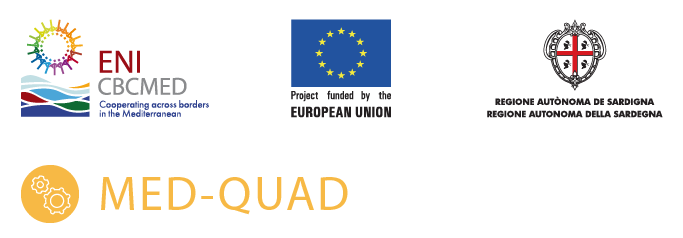-
The involved countries share common specific needs and constraints, such as the high youth unemployment rate, the low participation of women in the workforce or low public investment in R&D. MED-QUAD will address these challenges by creating the right environment where universities, SMEs, and governments cooperate and promote together innovation of processes and products. The Quadruple Helix approach will be applied to the planned cross-border Living Labs focused on 2 crucial issues: Tourism and Water. Universities will establish Innovation Transfer Offices, and policy-makers will acquire competences for creating entrepreneurship ecosystems where new firms find the right support. In the short term, at least 5 cross border spin-offs and at least 5 existing SMEs will create new jobs for qualified young people.
|

